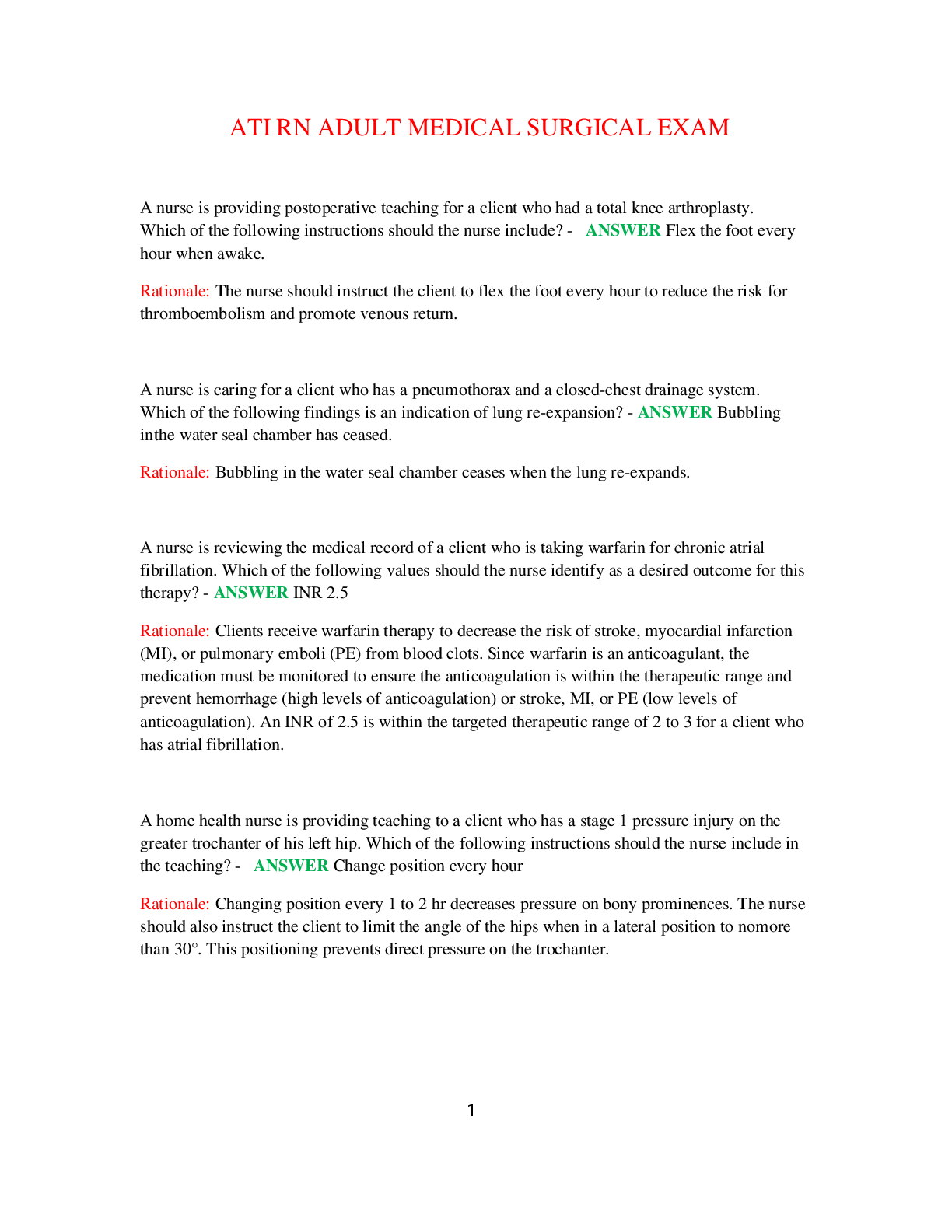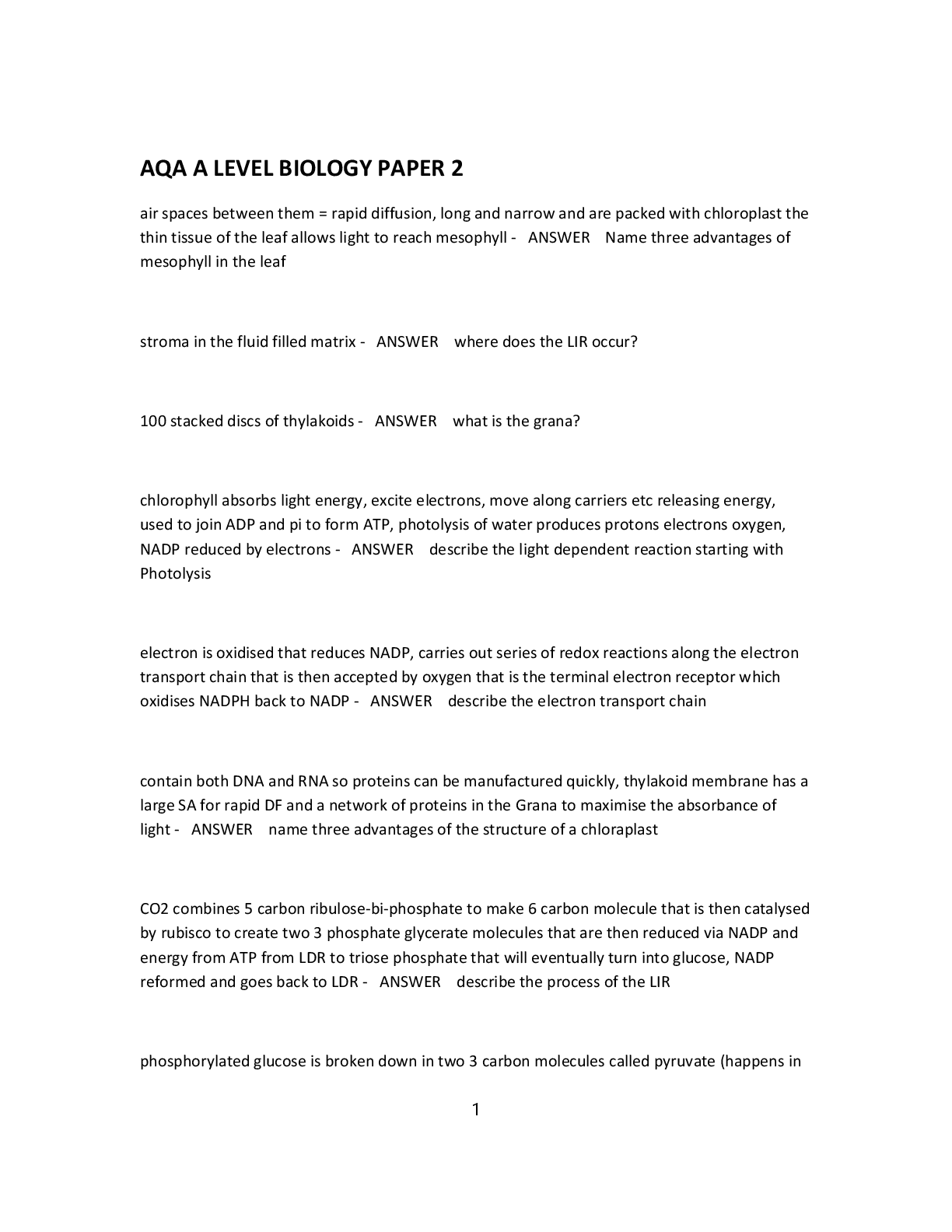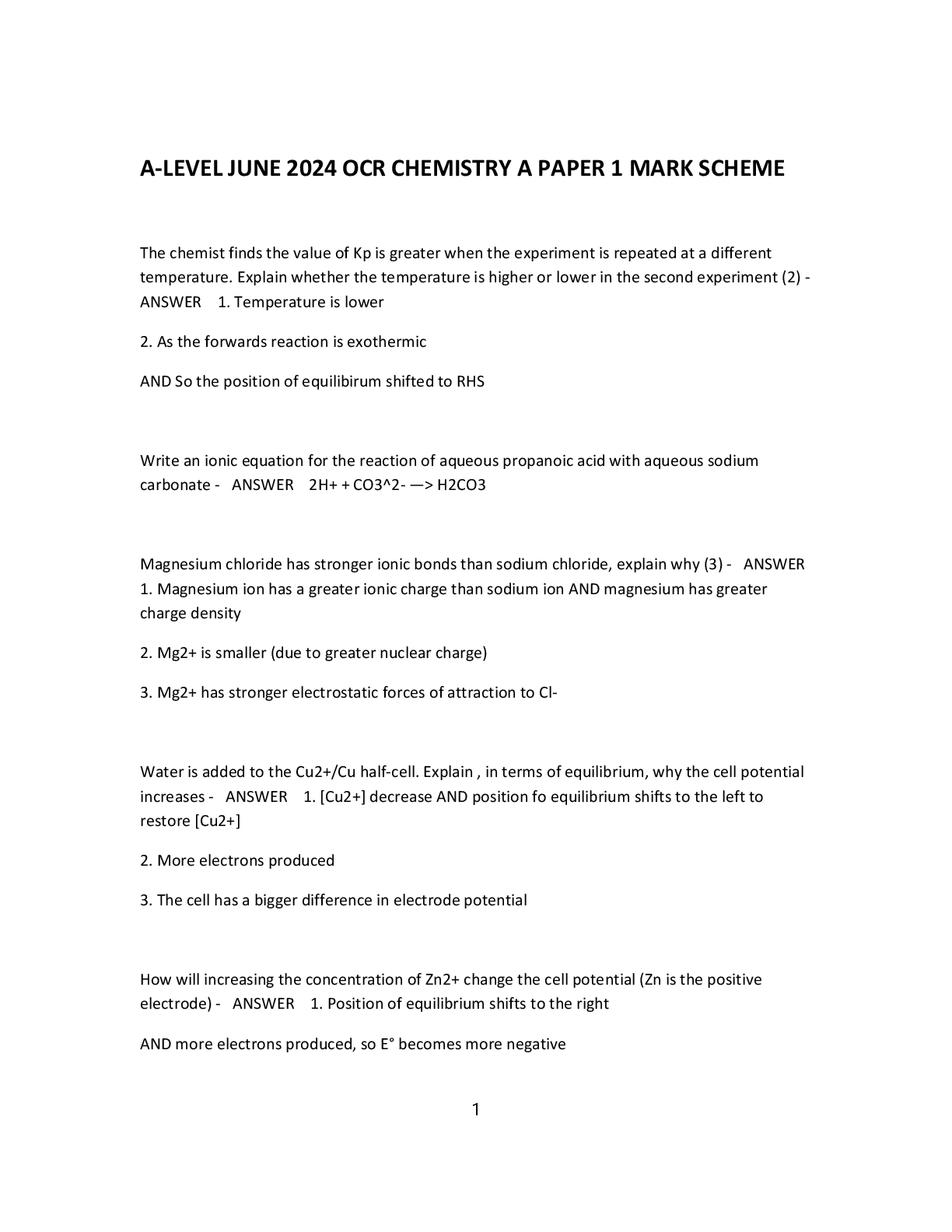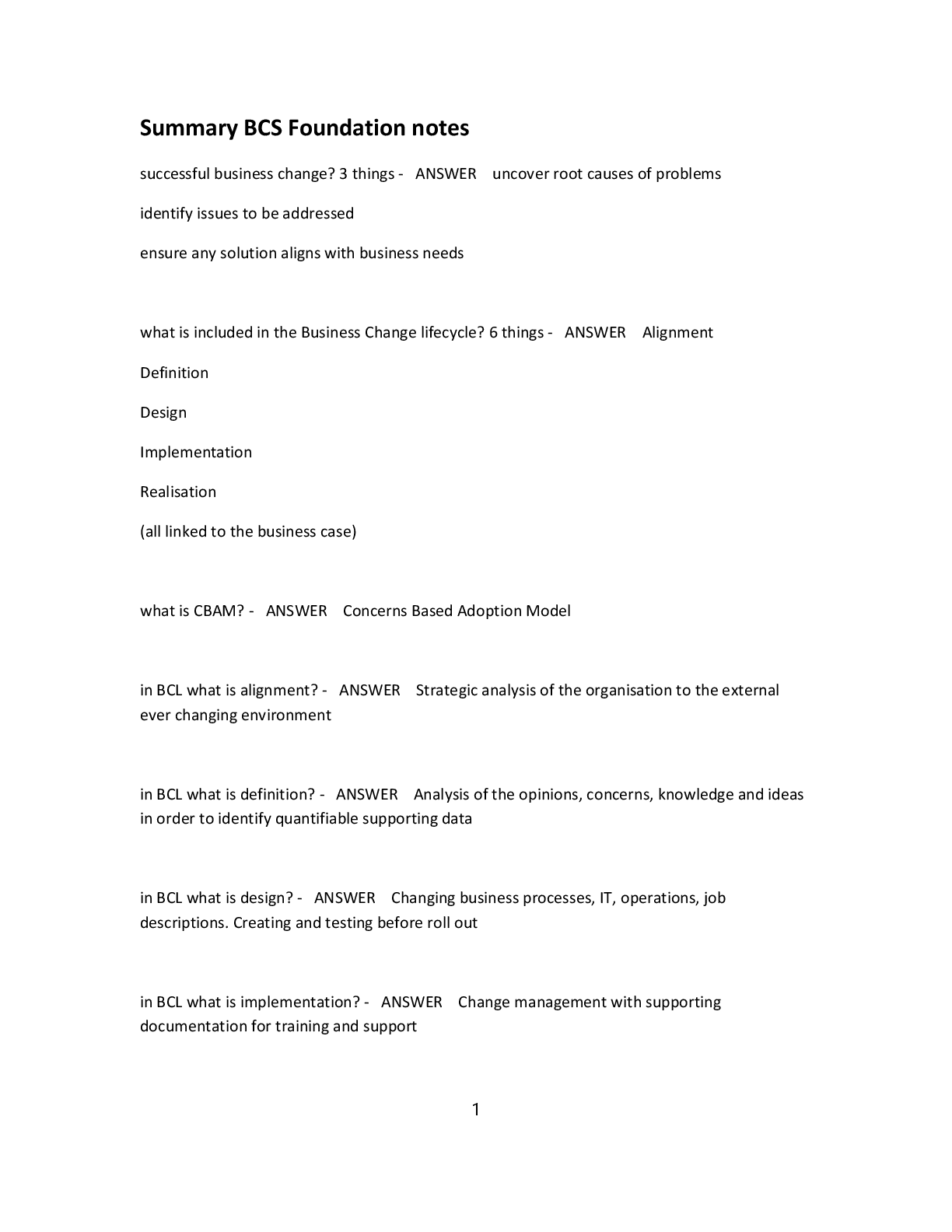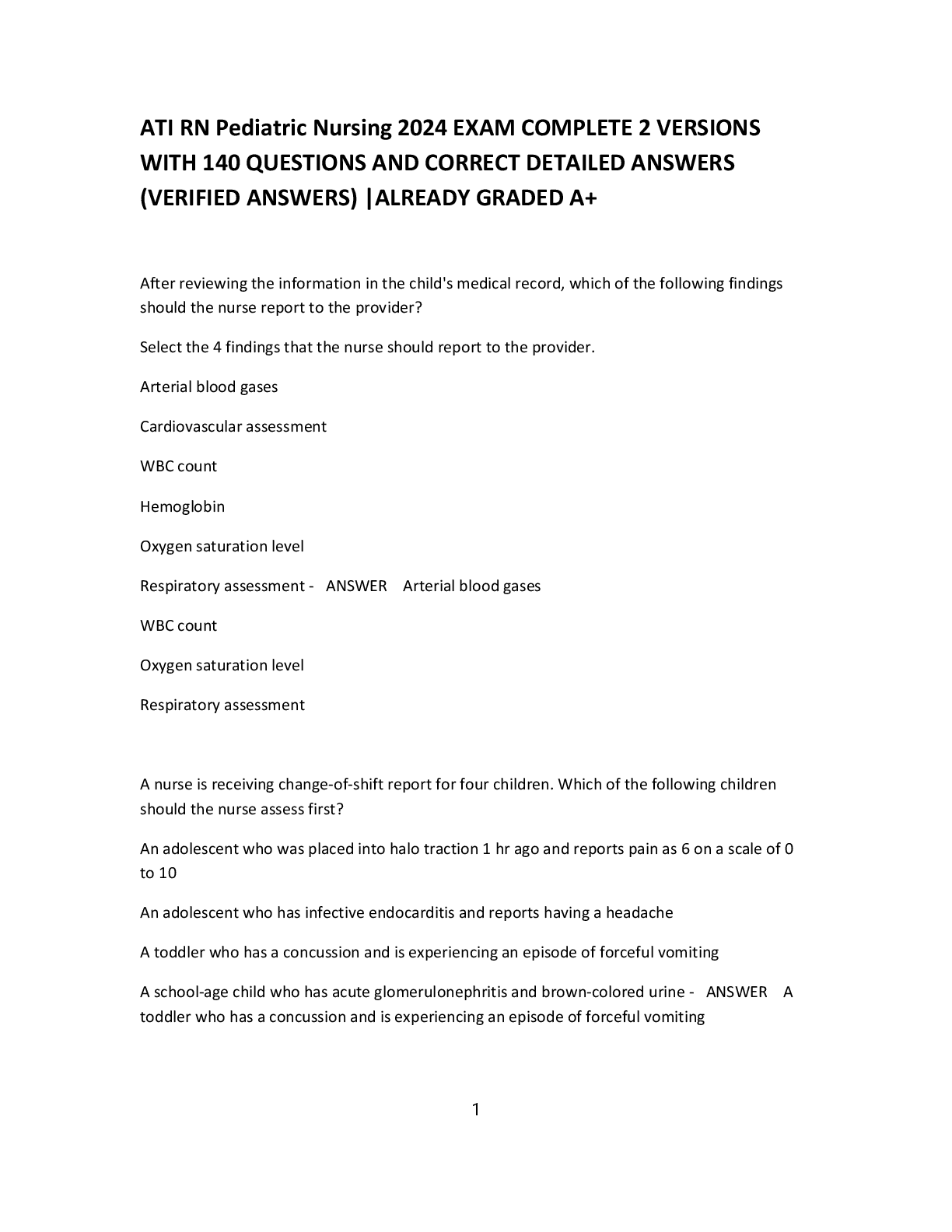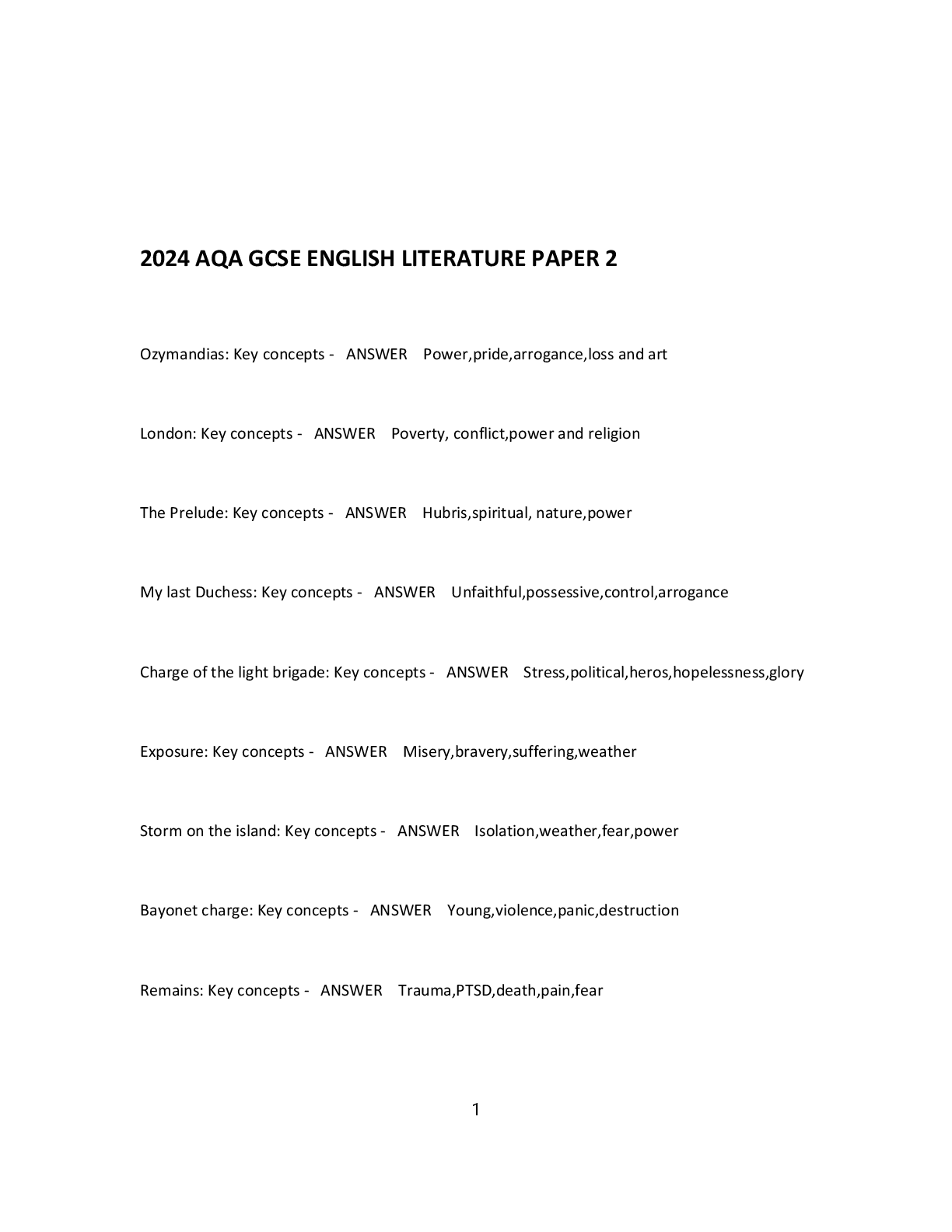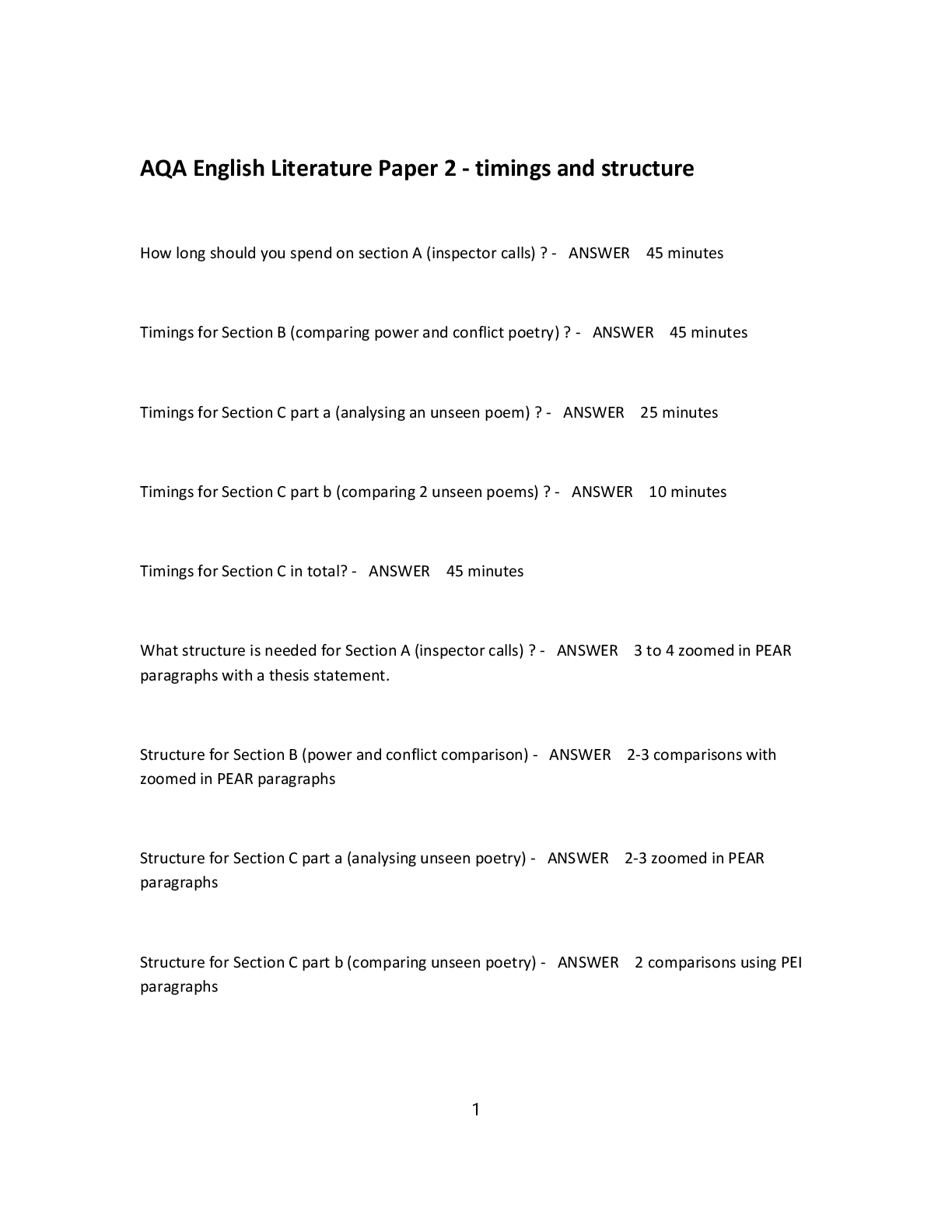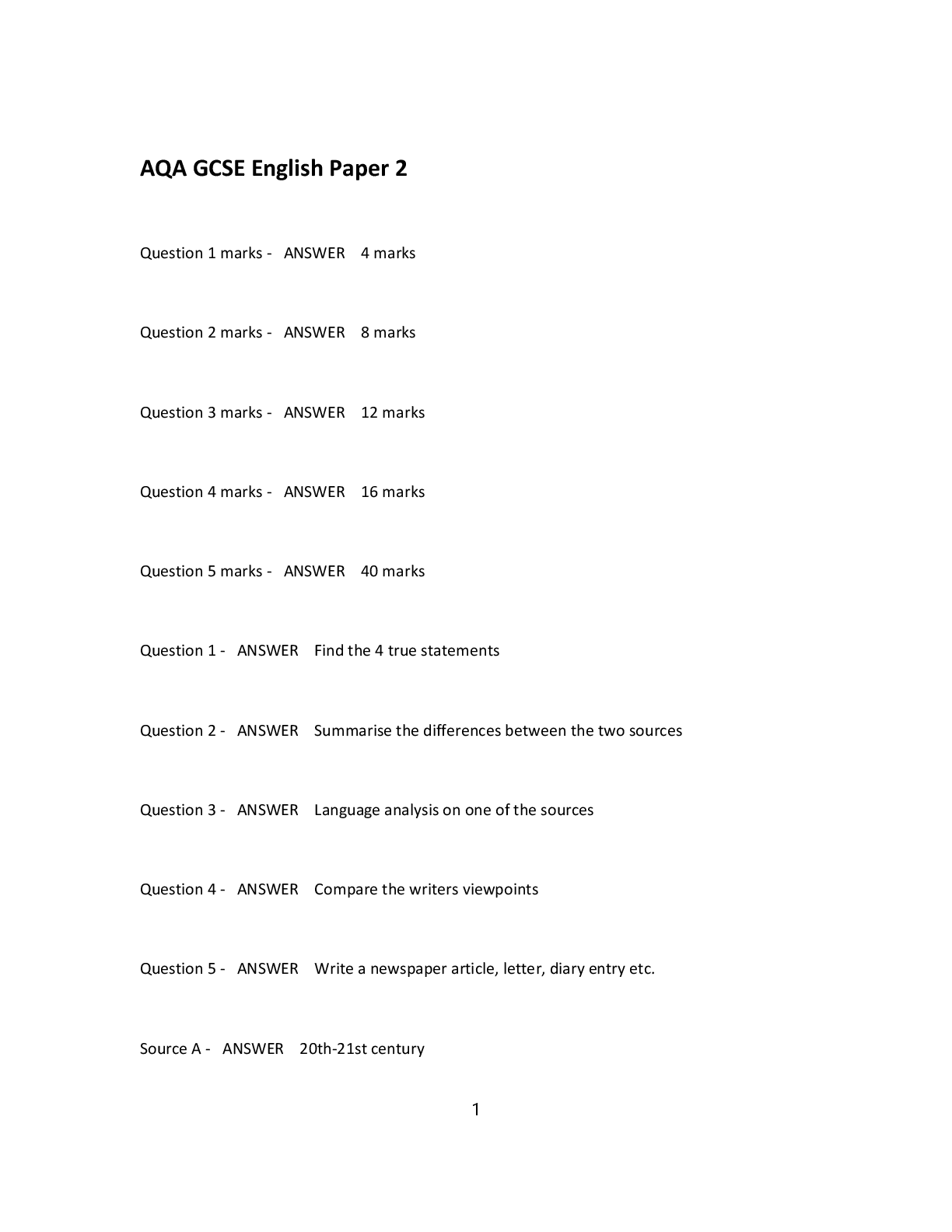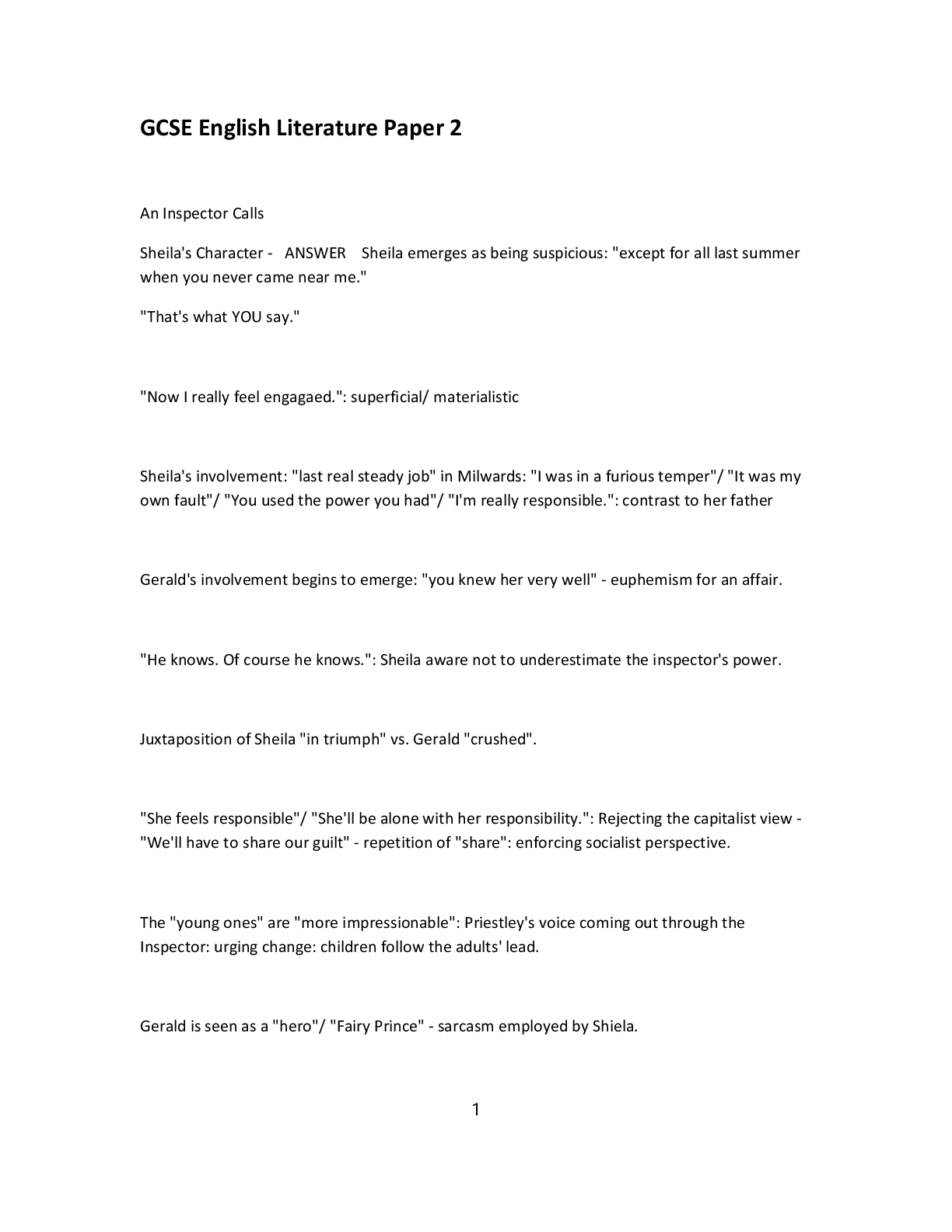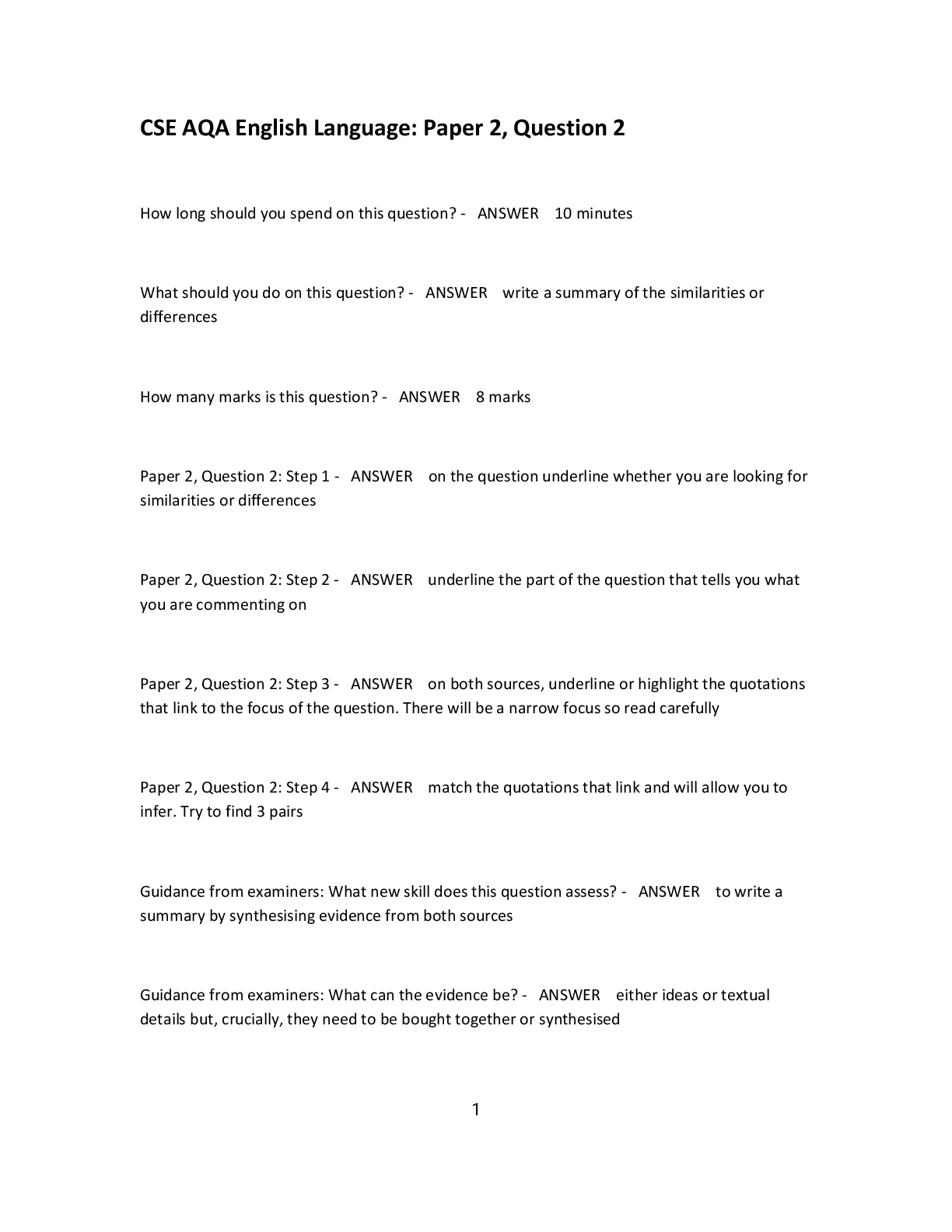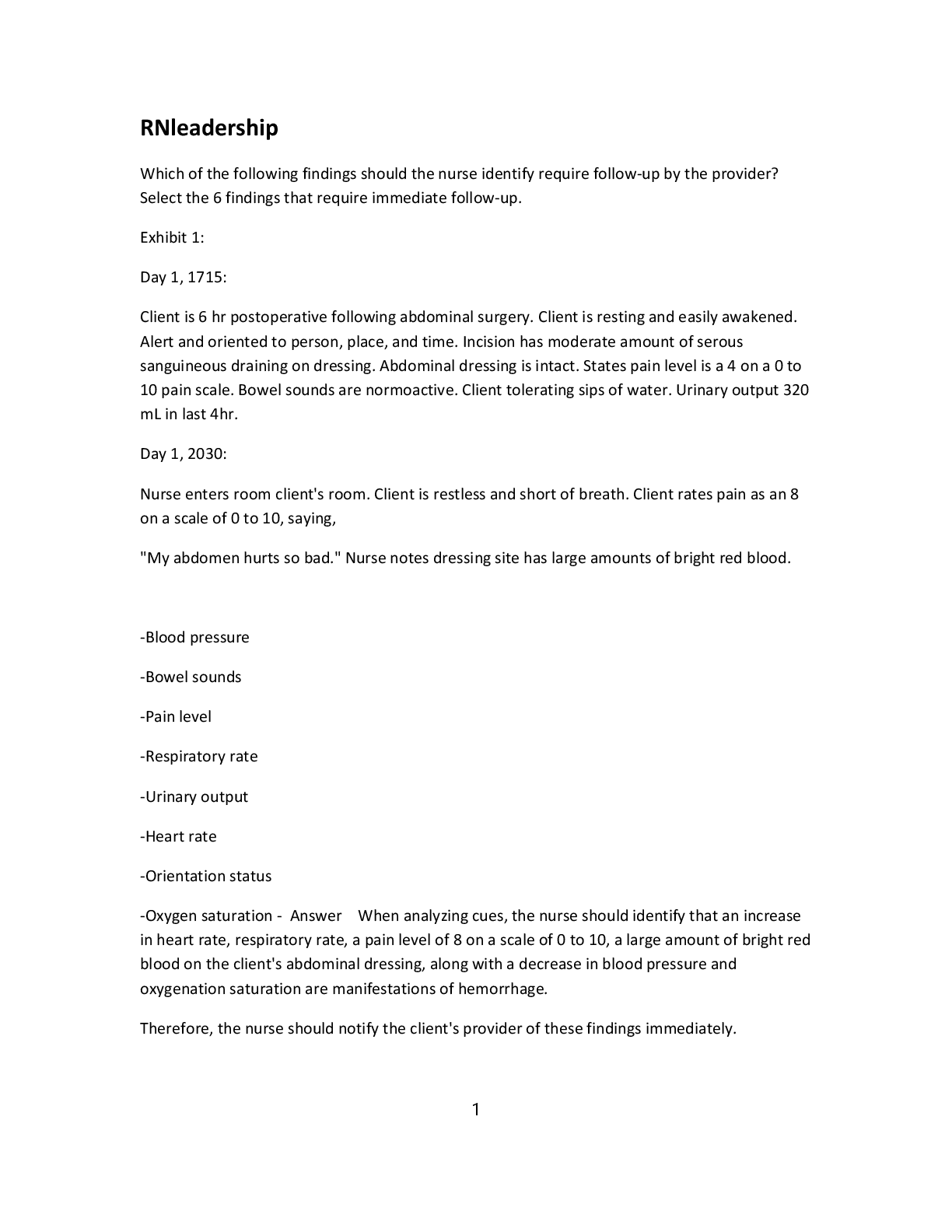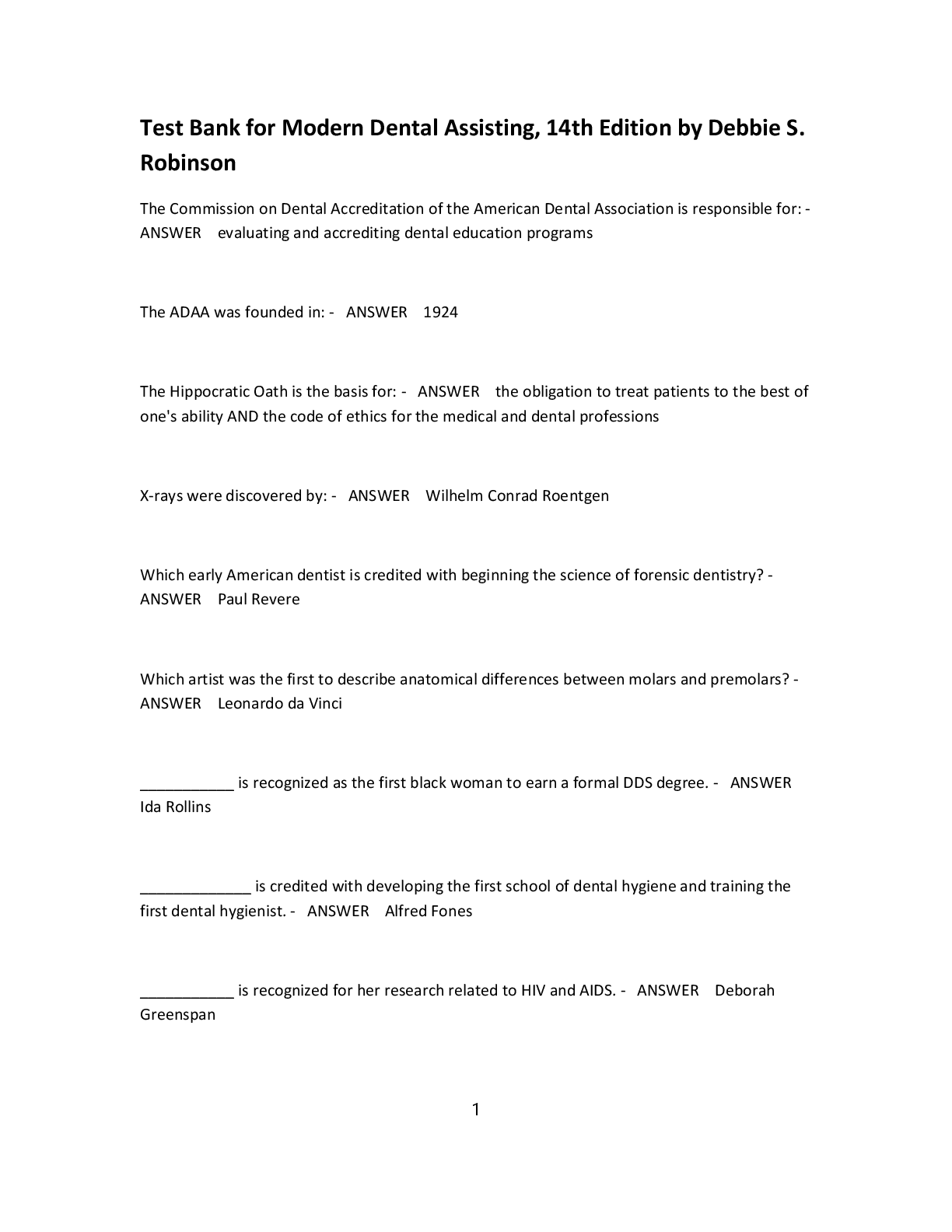English Literature > EXAM > GCSE English Literature Paper 2 (All)
GCSE English Literature Paper 2
Document Content and Description Below
An Inspector Calls Sheila's Character - ANSWER Sheila emerges as being suspicious: "except for all last summer when you never came near me." "That's what YOU say." "Now I really feel engagae... d.": superficial/ materialistic Sheila's involvement: "last real steady job" in Milwards: "I was in a furious temper"/ "It was my own fault"/ "You used the power you had"/ "I'm really responsible.": contrast to her father Gerald's involvement begins to emerge: "you knew her very well" - euphemism for an affair. "He knows. Of course he knows.": Sheila aware not to underestimate the inspector's power. Juxtaposition of Sheila "in triumph" vs. Gerald "crushed". "She feels responsible"/ "She'll be alone with her responsibility.": Rejecting the capitalist view - "We'll have to share our guilt" - repetition of "share": enforcing socialist perspective. The "young ones" are "more impressionable": Priestley's voice coming out through the Inspector: urging change: children follow the adults' lead. Gerald is seen as a "hero"/ "Fairy Prince" - sarcasm employed by Shiela. "Between us we killed her": shared responsibility. "She hands him the ring": signals Shiela's change in character: suspicions from Act I are confirmed: headstrong/ independent. An Inspector Calls Atmosphere - ANSWER "Pink and intimate" vs "brighter and harder": the idea of 'rose tinted glasses' (idealised view of an idyllic scene): Arrival of the inspector: interrogation/ symbol of truth/ reality/ voice of moral/ reason. "Not cosy and homelike": The make-up/ decor of the house is reflective of the family relationship. Arrival of Inspector: "Goole": shadow-like/ ghostly. - "Give us some more light": "light" is symbolic of reality/ morality. An Inspector Calls Mr Birling's Character - ANSWER Mr Birling: "It's one of the happiest nights of my life"/ "You're just the kind of son-in-law I always wanted" (rejection of Eric)/ "business opportunity"/ "when Crofts and Birlings are no longer competing." "Shiela's a lucky girl": Gerlad's social status/ reputation: appearances are very important. Strong use of dramatic irony: progressively makes Mr Birling look more idiotic and pathetic: "silly pessimistic talk"/ "The Germans don't want war"/ "the Titanic [...] absolutely unsinkable." Mr Birling sees himself as a "hard-headed practical man of business.": repetitive. Strong capitalist point of view: "a man has to make his own way.": socialists are "cranks" who believe "everybody has to look after everybody else". Mr Birling is highly self-righteous: "I might find my way into the next Honours list"/ "I was Lord Mayor"/ "I gather". Investigating suicide of young girl, Eva Smith: Mr Birling fired her: "She had a lot to say [...] so she had to go.": no voice for women. "Several hundred women"/ "they keep changing": no relationship with workers: Eva Smith is a microcosm for society (there are many in her position). "I can't accept any responsibility" vs "It's about time you learnt to face a few responsibilities.": Mr Birling is pathetic/ hypocritical. Power struggle emerges between the Inspector and Mr Birling: "cutting in"/ "I don't like that tone"/ "It's my duty". "He's only a boy" (Eric) vs "You're a man" (Gerald): higher level of respect. "Public men [...] have responsibilities as well as privileges": Inspector's response to Mr Birling attempting to enforce status/power. An Inspector Calls The Inspector (dun dun duuuuuuuuun....) - ANSWER "Pink and intimate" vs "brighter and harder": the idea of 'rose tinted glasses' (idealised view of an idyllic scene): Arrival of the inspector: interrogation/ symbol of truth/ reality/ voice of moral/ reason. Arrival of Inspector: "Goole": shadow-like/ ghostly. - "Give us some more light": "light" is symbolic of reality/ morality. Inspector has "an impression of massiveness, solidity and purposefulness." Power struggle emerges between the Inspector and Mr Birling: "cutting in"/ "I don't like that tone"/ "It's my duty". "Chain of events"/ "What happened to her then may have determined what happened to her afterwards." "He knows. Of course he knows.": Shiela aware not to underestimate the Inspector's power. "She feels responsible"/ "She'll be alone with her responsibility.": Rejecting the capitalist view - "We'll have to share our guilt" - repetition of "share": enforcing socialist perspective. The "young ones" are "more impressionable": Priestley's voice coming out through the Inspector: urging change: children follow the adults' lead. Symbolic "wall" exists between classes: the Inspector's (Priestley's) aim is to break it. Eva Smith Now "Daisy Renton": "She wanted to be Daisy Renton and not Eva Smith". "Public men [...] have responsibilities as well as privileges.": Inspector's response to Mr Birling attempting to enforce status/ power. "This was the end": a last resort as she was going to have a baby. Mrs Birling "used her influence" (CONTEXT) and "did [her] duty". Inspector's Final Message: Where Priestley's voice is heavily emphasised: voice of reason. "Each of you helped to kill her": shared responsibility. "There are millions and millions and millions of Eva Smiths and John Smiths still left with us.": hyperbole for effect: stressing that there is still time for change. [Show More]
Last updated: 5 months ago
Preview 4 out of 15 pages

Loading document previews ...
Buy this document to get the full access instantly
Instant Download Access after purchase
Buy NowInstant download
We Accept:

Reviews( 0 )
$10.50
Can't find what you want? Try our AI powered Search
Document information
Connected school, study & course
About the document
Uploaded On
Feb 12, 2025
Number of pages
15
Written in
Additional information
This document has been written for:
Uploaded
Feb 12, 2025
Downloads
0
Views
21

